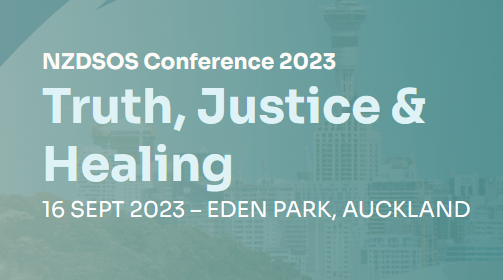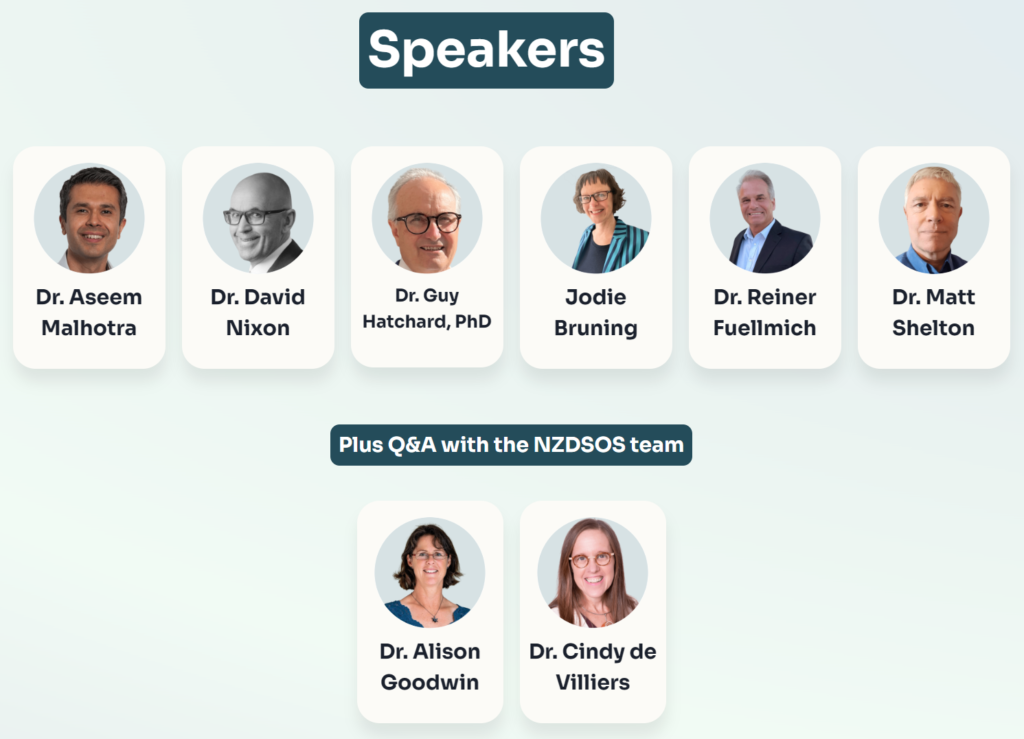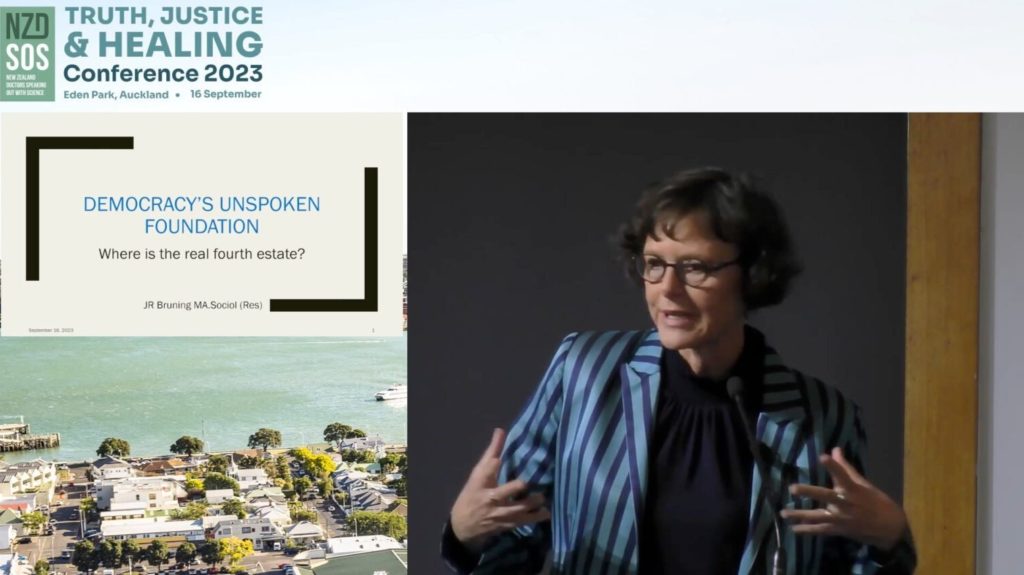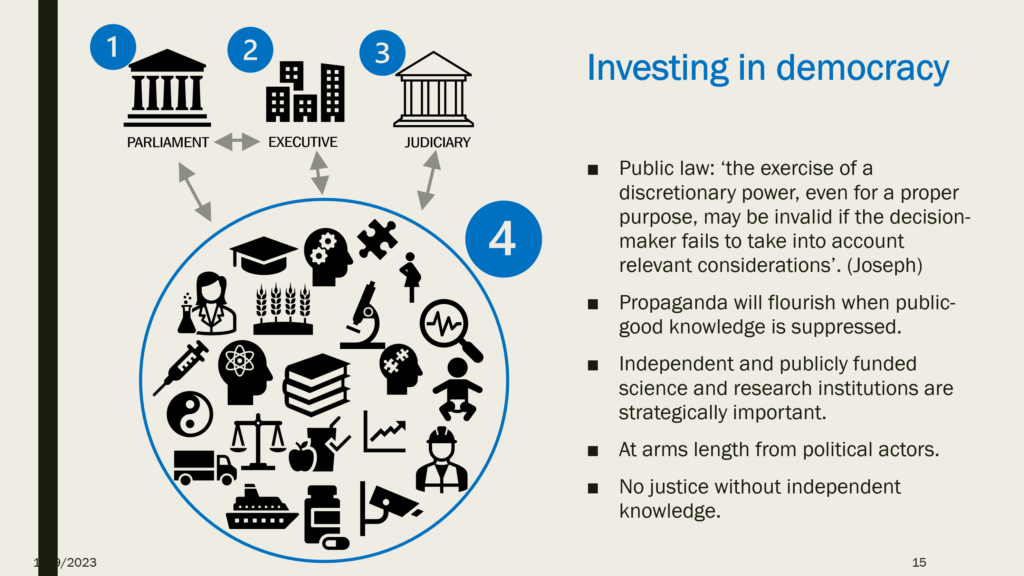On September 16 2023 I was honoured to present at the NZDSOS, (New Zealand Doctors Speaking Out on Science) annual conference. The theme was Truth, Justice and Healing.

The Grand Hall at Eden Park stadium, in Auckland was filled to the brim with 1000 attendees and another 1300 livestreaming. I presented alongside scientists, doctors and cardiologists. The presenters clearly grasped that a scientific and social phenomenon cannot be understood until the political and economic drivers are explored. Because when bioethics are reconfigured into utilitarian, one size fits all rubrics, something has gone wrong. Who would have thought that so many scientists and doctors could also be sociologists!
Australian cardiologist, with a long history in academia and clinical medicine, Dr Chris Neil graciously stepped in to present when Reiner Fuellmich’s south America-based connections failed.

My discussion focussed an increasing knowledge (at very high levels) that democracies are failing, and on why it is natural that powerful institutions would take advantage of this.
However, if we are to be able to articulate and understand what a successful democracy really is, we must be able to articulate what justice is – what justice infers.
Democracy requires that officials are transparent and accountable when carrying their duties and that they must deliberate fairly. This includes fairly outlining an issue at hand, and fairly representing and addressing the concerns of civil society – particularly during important policy development and consultation periods. Thousands of daily processes throughout the public sector then, we hope, aggregate and shepherd public good cultures in public servants. They should provide the guiderails to ensure that decision-making is just. That prevents abuse of power. Just at the individual level, the local level, and at the State level, and critically – when legislation is made.
When the guiderails fail – when accountable and transparent actions are substituted with authoritarian ‘because I said so’ forms of instruction and information promotion, it’s important to step back and ask:
‘what has gone wrong?’
Increasingly authoritarian ‘because I said so’ positions are all too frequently, based on bureaucratic and corporate science-based claims that a given technology is safe or that a new policy is in our best interest.
‘Science’ is not an apolitical endeavour. And health stewardship – when the processes, policies and resources are predominantly oriented to medical technologies and population level surveillance, is not health, but a collection of medicalised (rather than health-based) processes that more closely resembles Kheriaty’s biomedical security state.
The outcomes of science, and in particular, outcomes that are commercialised at scale and pace, arise so as a consequence of financial and political drivers, that – it is fairly clear, are amplified by financial and political incentives. Thus, it has ever been so. Guns, germs and steel.

Democracy is evidently being gamed by institutional actors who use scientific claims to justify rapid policy transitions, including the distraction of emergencies, to engender acquiescence and push remarkably concerning policies into law.
When there is no shadow minister that can sufficiently articulate and rebut quickly drafted laws; when legacy media – the fourth estate – is neutered and policy-aligned, how do we go about establishing informational systems for civil society, to understand and shed light on complex policy issues?
As I say in my talk, ignorance can play as strategic a role as knowledge.
It’s time to think about what we don’t know, how and why we are uninformed, and what we can do about it. We must invest in democracy – if we are to retain it.
It was an honour.

The Conference LiveStream of the entire day is available until 30/10/23, but many people asked me for a transcript, so here it is.